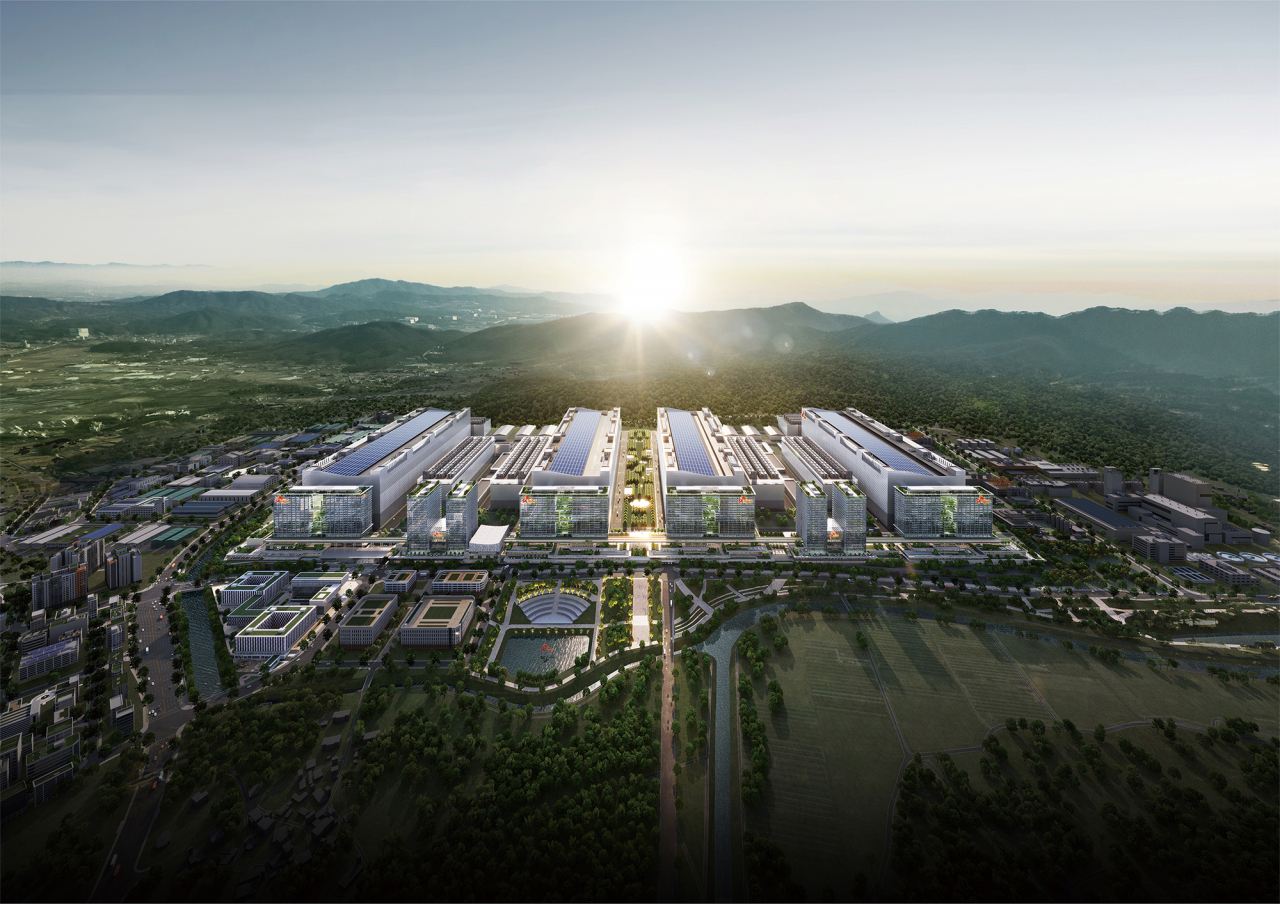 |
A birds-eye view rendering of SK hynix's Yongin Semiconductor Cluster (SK hynix) |
SK hynix, the world's second-largest memory chip maker, said it has decided to invest about 9.4 trillion won ($6.77 billion) in building the first manufacturing plant and business facilities of the Yongin Semiconductor Cluster in a board meeting on Friday.
The chipmaker plans to start construction of the first fab in the Yongin cluster in March next year, and complete it in May 2027. The envisioned manufacturing plant will produce next-generation DRAM, including High Bandwidth Memory, a representative memory technology for AI.
"The Yongin Cluster will be the foundation for SK hynix's mid- to long-term growth and a place for innovation and coprosperity that we are creating with our partners," said SK hynix Vice President Kim Young-sik, leading the Manufacturing Technology team.
"We want to contribute to revitalizing the national economy by successfully completing the large-scale industrial complex and dramatically enhancing Korea's semiconductor technology and ecosystem competitiveness," Kim said.
The investment will be made from August 2024 to the end of 2028, taking into consideration the design period for fab construction, and with the business support building scheduled for completion in the second half of 2028.
The Yongin Cluster, which will be built on a 4.15 million square meter site in Wonsam-myeon, Yongin, Gyeonggi Province, is currently under site preparation and infrastructure construction.
SK hynix said it has decided to build four fabs that will produce next-generation chips, and a semiconductor cooperation complex with more than 50 small local companies.
After the construction of the first fab, the company aims to complete the remaining three fabs sequentially to grow the Yongin Cluster into a global AI semiconductor production base.
The investment will cover various construction costs necessary for the initial operation of the cluster, including auxiliary facilities, water treatment bodies, communal areas and business support buildings, along with the first fab, the company said.
The company also plans to build a “Mini-fab2” within the first phase to help small businesses develop, demonstrate and evaluate technologies.







![[Today’s K-pop] Blackpink’s Jennie, Lisa invited to Coachella as solo acts](http://res.heraldm.com/phpwas/restmb_idxmake.php?idx=644&simg=/content/image/2024/11/21/20241121050099_0.jpg)